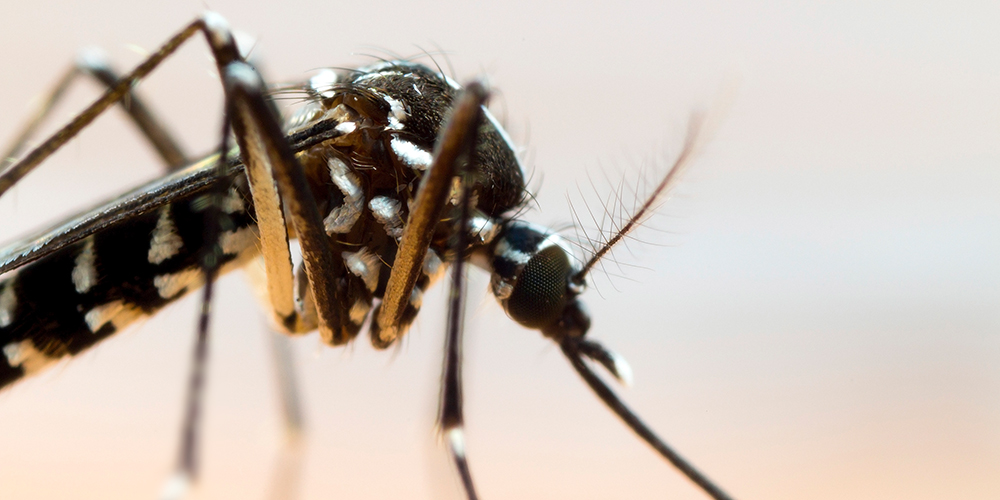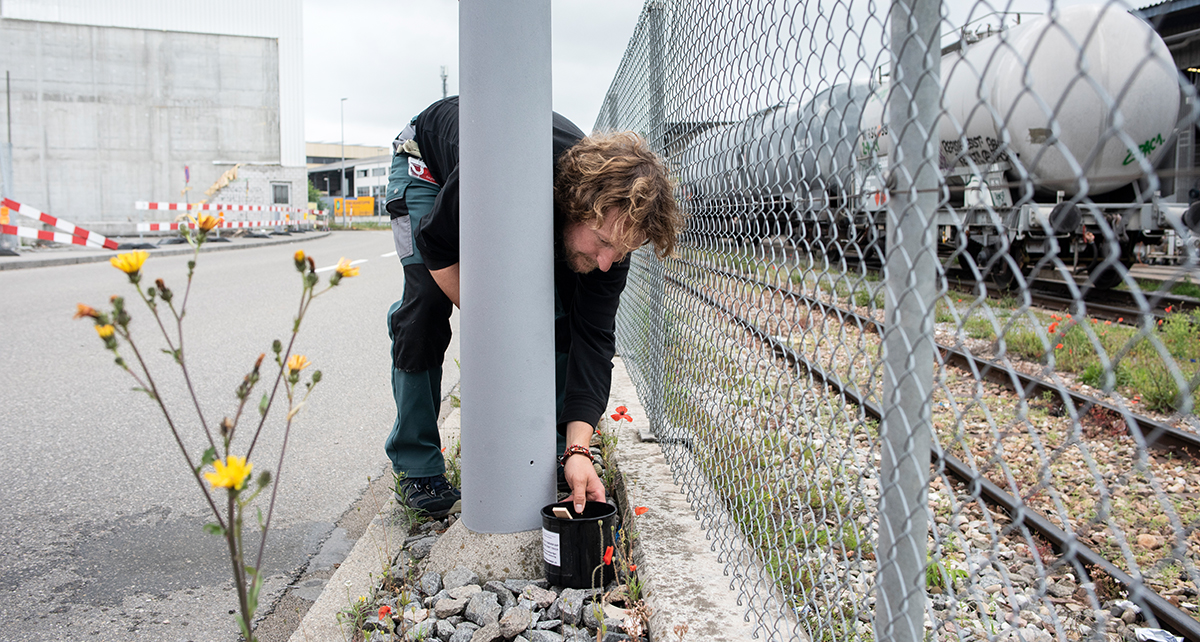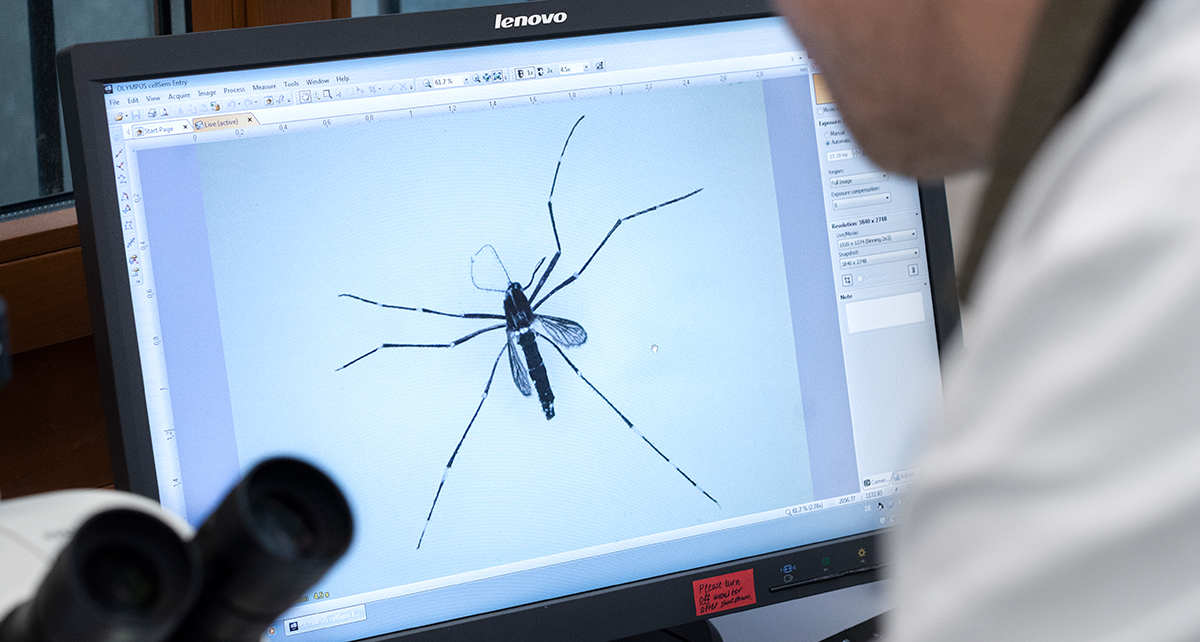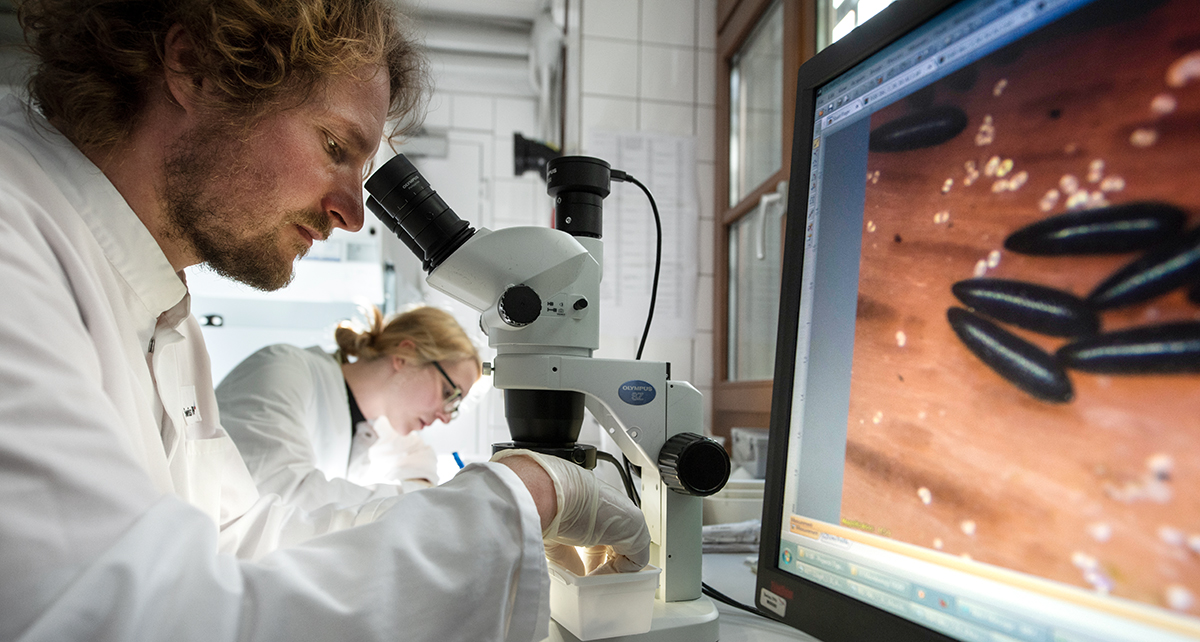Articel Content
Tiger mosquito on the increase.
Text: Reto Caluori
At first, the spread of the Asian tiger mosquito was limited to Ticino. Now, however, it is colonizing more and more new regions in Switzerland. The Asian tiger mosquito (Aedes albopictus) is an invasive mosquito species that originates from Southeast Asia. It has adapted perfectly to its new environment and is starting to establish itself here.
This striped mosquito poses a problem, as it bites even during the day and can transmit tropical diseases. Although the latter has not yet happened in Switzerland, it is reason enough to monitor and control the mosquito’s spread.
The current populations are offspring from individuals that were introduced into Italy from the USA in 1990s. In Europe, the tiger mosquito has primarily been transported passively in vehicles along the main traffic axes and has come to colonize large parts of the Mediterranean basin, even crossing the Alps. In 2015, its presence was also confirmed in Basel.
Since then, researchers from the Swiss Tropical and Public Health Institute (Swiss TPH) have been monitoring its spread in the region. “We have found tiger mosquitos in various locations,” says Dr. Pie Muller, who leads the monitoring project. DNA analyses will show whether these are newly introduced individuals or come from populations that have overwintered here.
Although it’s unlikely that the tiger mosquito will be prevented from gaining a foothold, the researchers’ aim is to keep the populations as small as possible. To this end, they are studying aspects of the mosquitos’ behavior, such as their flying abilities. This will make it possible to estimate how far the insects are able to spread without the aid of transportation.
Pie Müller is a research group leader at the Swiss TPH and a lecturer at the University of Basel. His main research interest is the biology of mosquitos, and developing and implementing new methods of surveillance and control. He is the Swiss principal investigator for TIGER, a trinational network that surveys the Asian tiger mosquito in the Upper Rhine region.
More articles in the current issue of UNI NOVA.







